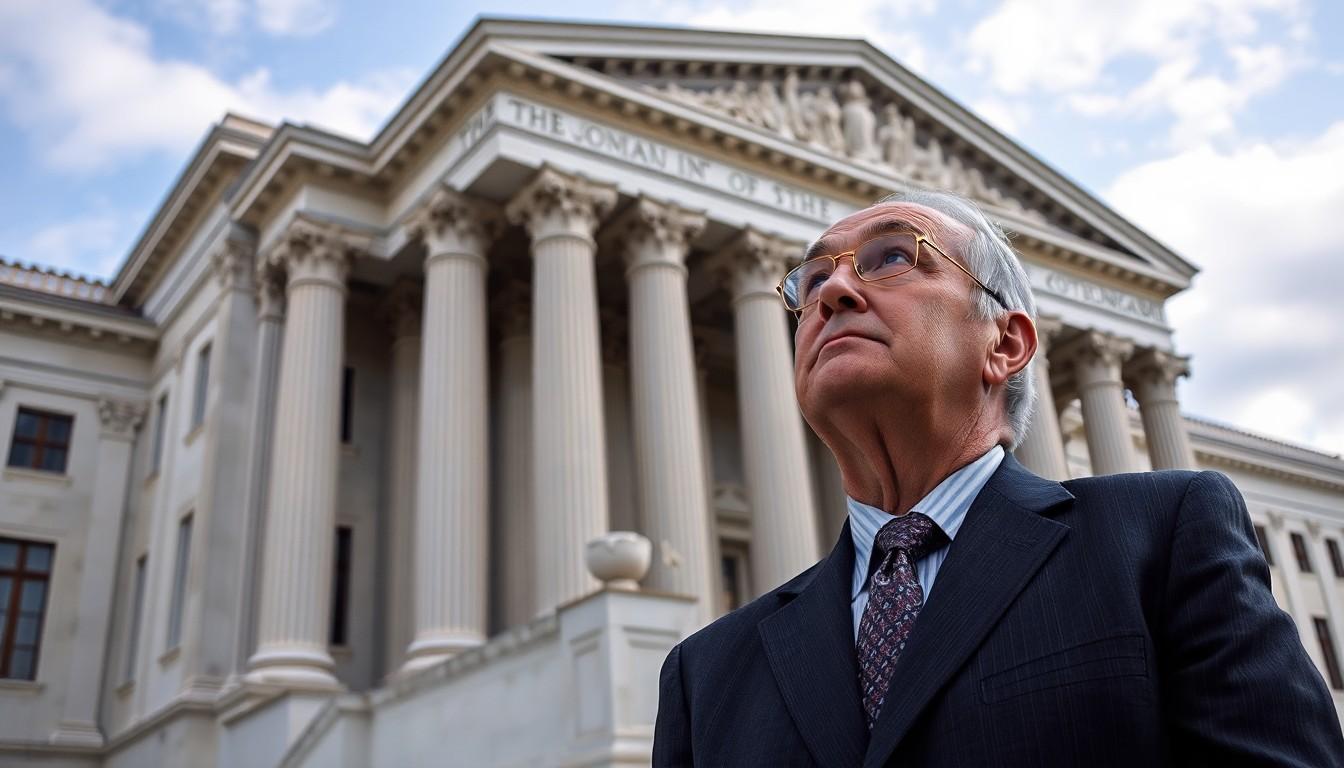Phone:
(701)814-6992
Physical address:
6296 Donnelly Plaza
Ratkeville, Bahamas.

Political philosophy might sound like a stuffy subject reserved for tweed-jacketed professors, but it’s actually a lively debate about how society should work. Imagine a group of thinkers sitting around a table, arguing passionately about justice, power, and the best way to run a government—sounds like a reality show, right? But instead of drama, they’re serving up ideas that shape our world.
Political philosophy examines fundamental questions regarding the state, governance, and the rights of individuals. This field explores critical concepts such as justice, authority, and liberty. Scholars analyze how political structures impact human behavior and society’s moral fabric. Numerous theories contribute to understanding political ideologies and their implications.
Debates in political philosophy are lively, featuring diverse perspectives that influence contemporary issues. Thinkers like Plato and John Locke laid foundational ideas that continue to resonate today. Their works spark discussions on the role of government and the concept of the social contract.
Political philosophy is not limited to historical figures; modern philosophers address pressing topics. Contemporary issues, such as democratic governance and social justice, benefit from philosophical scrutiny. Engaging with these debates shapes public policy and guides ethical considerations in politics.
This discipline often intersects with other fields like economics and sociology. Analyzing these intersections reveals broader implications about power dynamics and societal structures. Political philosophy encourages critical thinking about citizenship responsibilities and rights.
Citizens can benefit from understanding the principles of political philosophy. It fosters informed engagement in democratic processes by emphasizing the significance of individual voices. The impact of political thought extends to social movements and global affairs, making it a vital area of study.
Through dynamic discussions, political philosophy remains relevant and influential. It’s an ongoing conversation that impacts legislation, societal norms, and individual beliefs.

Political philosophy has evolved significantly over centuries, with thinkers shaping its fundamental ideas and questions. This journey unfolds across various eras, reflecting humanity’s changing understanding of governance and society.
In ancient times, philosophers like Plato and Aristotle laid crucial foundations. Plato’s “Republic” examined justice and the ideal state, proposing a society led by philosopher-kings. Aristotle focused on practical governance, analyzing various political systems and advocating for a balanced government. These early contributions established key concepts, including the ideal of justice and the role of the individual within the state.
The modern era brought thinkers like Thomas Hobbes, John Locke, and Jean-Jacques Rousseau into the discussion. Hobbes argued for a strong central authority to prevent chaos, while Locke emphasized natural rights and government consent. Rousseau introduced the idea of the social contract, shaping contemporary democratic thought. These modern philosophers addressed individual rights, authority, and the relationship between citizens and the state, influencing political ideology and practice today.
Political philosophy encompasses crucial themes that shape governance and society. Three key concepts include justice, freedom, and power. Each of these areas provides a foundational understanding of political thought.
Justice stands at the core of political philosophy. Scholars debate its definition, examining concepts like distributive justice and procedural justice. Distributive justice concerns the fair distribution of resources and opportunities among individuals and groups. Procedural justice focuses on fairness in processes that lead to outcomes. Thinkers like Plato and John Rawls significantly contributed to these discussions, with Rawls introducing the “veil of ignorance” to ensure impartiality in justice. Through these frameworks, justice becomes a tool for evaluating societal norms and guiding ethical legislation.
Freedom represents another fundamental concept in political philosophy. It encompasses various dimensions, such as personal liberty and collective freedom. Personal liberty pertains to individual rights, including speech, religion, and privacy. Collective freedom often relates to the community’s ability to participate in governance. Philosophers like John Stuart Mill emphasized the importance of individual freedoms while acknowledging the need for societal balance. This duality raises essential questions about the limits of freedom in promoting the common good and safeguarding individual rights. Exploring freedom emphasizes its critical role in shaping democratic principles.
Power plays a central role in understanding political dynamics. It encompasses the capacity of individuals or institutions to influence others and implement decisions. Various forms of power exist, including coercive power, persuasive power, and structural power. Thinkers like Hobbes and Foucault analyzed how power shapes relationships and society. Hobbes focused on the necessity of a central authority to maintain order, while Foucault examined power’s subtle, pervasive nature in social norms and institutions. Recognizing different power structures helps illuminate conflicts and societal hierarchies, making it an essential concept in political philosophy.
Significant thinkers have shaped political philosophy through their contributions, providing insights into governance, justice, and society.
Plato, a foundational figure in Western philosophy, proposed the idea of the “philosopher-king” in his work, “The Republic.” He contended that only those with wisdom and virtue should rule, ensuring a just society. His theory of forms emphasized the existence of ideal forms of justice, beauty, and equality, contrasting with the imperfect realities of the political world. Discussions surrounding his allegory of the cave illustrate the importance of knowledge in leadership. Plato’s influence extends beyond philosophy, impacting politics and ethics.
John Locke’s contributions significantly shaped modern democratic thought. He introduced the concept of natural rights, arguing that all individuals possess rights to life, liberty, and property. Through his writings, particularly “Two Treatises of Government,” Locke addressed the social contract and the idea of government as a servant of the people. He believed that legitimate government relies on the consent of the governed. His thoughts laid the groundwork for later democratic principles and inspired movements advocating for individual rights.
Karl Marx challenged existing political and economic structures with his revolutionary ideas. In works like “The Communist Manifesto” and “Das Kapital,” he critiqued capitalism and its effects on social relationships. Marx asserted that class struggle drives historical development and highlighted the exploitation of the working class. By advocating for a classless society, he envisioned a world rooted in equality and shared resources. His theories continue to spark discussions on capitalism, labor rights, and social justice, influencing various political ideologies.
Contemporary political philosophy tackles pressing issues like globalization and environmental politics, impacting society deeply.
Globalization presents challenges regarding national sovereignty and cultural identity. Scholars analyze how global interconnectedness affects local political systems and governance. Economic disparities often arise; wealthier nations influence poorer countries, raising ethical concerns about power dynamics. Philosophers discuss the implications of global trade policies on human rights and labor conditions, emphasizing the need for equitable solutions. Various thinkers advocate for reforms that protect vulnerable populations while promoting cooperation among nations. Globalization has sparked debates on citizenship and belonging, transforming how individuals engage in political processes.
Environmental politics has emerged as a critical area of concern within political philosophy. Climate change poses moral questions about justice and responsibility across generations. Thinkers like John Rawls have influenced discussions on intergenerational equity, urging consideration of future people’s rights. Policy frameworks often reflect varying priorities, leading to debates on sustainability, economic growth, and environmental justice. Engaging with these issues entails balancing individual liberties with the collective responsibility to protect the planet. Philosophers advocate for robust actions to address ecological crises, emphasizing the interconnectedness of environmental health and social justice in shaping public policy.
Political philosophy remains a vital and dynamic field that influences not just academic discourse but also real-world governance and societal norms. By engaging with the ideas of past and present thinkers, individuals gain a deeper understanding of justice, power, and individual rights. This knowledge empowers them to participate meaningfully in democratic processes and advocate for social change. As contemporary issues like globalization and environmental politics continue to evolve, the relevance of political philosophy in shaping ethical frameworks and public policy only grows. Ultimately, it fosters informed citizens who can navigate complex political landscapes and contribute to the ongoing dialogue about justice and governance.